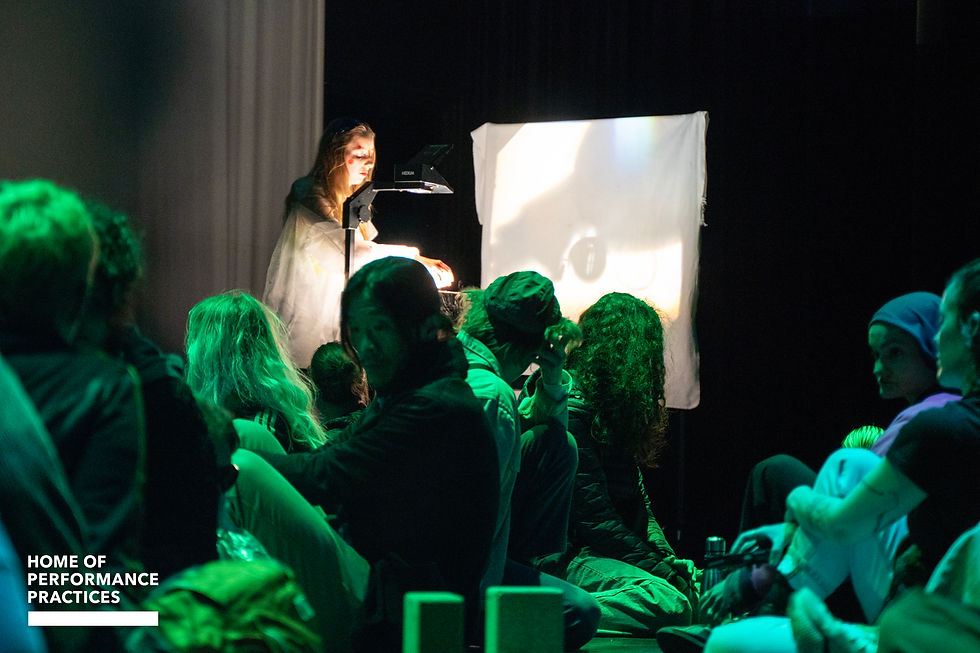THE BODY AS AN ECOSYSTEM: RE-INVENTING INTIMACY WITH THE MULTISPECIES BODY
zoe antypa
2023-2025
This thesis explores imagining the body as an ecosystem, integrating visual and performance practices with posthuman feminist theory. The primary goal is to facilitate ways towards the re-invention of intimacy with the multispecies body, making notions of interconnectedness, affective material agency and relationality performatively accessible through artistic and collaborative practices. To explore this, it proposes a methodology of becoming-with posthuman feminist thought, scientific insights, human and other-than-human collaborators.
The main hypothesis is that embodied, emotional and sensory engagements can transform human perceptions on the body and interspecies relationships and foster new forms of ecological intimacy. Situated within the broader context of ecological crisis and systemic injustice, this research responds
to the intertwined political and environmental repercussions of alienated human-other-than-human relations, by approaching the body as multiple and multispecies site. While acknowledging science’s contribution in understanding the world, it departs from its limitations and proposes a symbiotic
approach to knowledge-making, on artistic, ecological and social level.
Methodologically, it employs interdisciplinary collaboration with an ecology biologist, practices of guiding visualization and giving-body - to describe a visual practice that extends beyond representation-, body based practice in group setting and a phenomenological approach for interpreting the impact of the methodology. Research outcomes include a method for performance score making based on the mechanism of breathing, promoting affective relationships as modes of knowledge production and ecological approaches on making. Additionally, it introduces the neologism symbiotic bodyset, to describe the awareness of affective entanglements with human and other-than-human bodies, tethered on the material reality of the body, as a mode of researching, performing and creating.
Ultimately, this research underscores the urgency of embodied, affective forms of knowledge production, offering methodological tools that contribute to emerging discourse in posthuman feminism, performance and visual art, by positioning the body as a site of multispecies relationality and ethical engagement.













